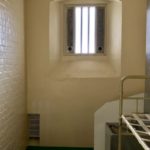The Difference Between a Summary Offence and a Minor Indictable Offence in NSW

Legal terminology can be confusing.
If you have been arrested and charged with a criminal offence, you may hear a lot of different terms, which you are not familiar with.
Criminal offences are categorised into certain groups, generally depending on severity.
The category of offence you have been charged with will determine how the matter is dealt with, which court you go to, and even what penalty you are likely to get.
The main two categories of offences are summary offences and indictable offences.
Indictable offences are often heard in a higher court, and come with more severe penalties, while summary offences have a maximum penalty of two years imprisonment and are most often dealt with in front of a magistrate in the local court.
Even if you have been charged with an indictable offence, there are certain circumstances where it will be treated as a summary offence and heard in a local court, rather than the district or higher courts.
Summary offences are generally considered to be milder than indictable offences, but there is often a certain element of overlap between summary offences and minor indictable offences in NSW.
Although indictable offences are often tried in the district court in front of a judge and jury, if they are not too serious, you or the prosecution may have the option of choosing to have the matter dealt with by a magistrate in the local court.
What are the minor indictable offences?
Some indictable offences that are considered minor and can be treated as summary offences include:
- Assault occasioning actual bodily harm
- Indecent assault
- Malicious damage for less than $5,000
- Driving a motor vehicle without consent of the owner
- Receiving stolen goods for under $5,000
- Stealing goods under $5,000
Minor indictable offences are more serious than summary offences, but less serious than most other indictable offences.
Which court will my minor indictable offence be heard in?
The majority of minor indictable offences in NSW are heard in the local court in front of a magistrate, unless the prosecution elects to have them heard in a higher court.
This means that you will face a single magistrate rather than a judge and jury.
What are the penalties for minor indictable offences?
When minor indictable offences are treated as summary offences, the same maximum penalties apply.
Generally, summary offences come with a maximum penalty of two years imprisonment.
If your minor indictable offence is treated as a summary offence and heard in the local court, you will face the same maximum penalties.
If the prosecution elects to have the matter dealt with by a higher court, you will face higher penalties.
The maximum penalty you will receive if found guilty in the local or district court depends on the specific nature of the offence, and how serious it is as well as how much evidence the prosecution has against you.
If you have been charged with a minor indictable offence in NSW, it is important to seek legal advice from an experienced criminal lawyer, especially before the prosecution elects to have the matter dealt with in the district court rather than the local court.
A respected criminal lawyer can persuade the prosecution to keep the matter in the local court, and can work towards having the case dropped altogether.
Although your offence may seem minor, you may still end up facing serious penalties and a lifelong criminal conviction, so make sure you have the best possible chance of your case being successfully defended.
Receive all of our articles weekly
Author






